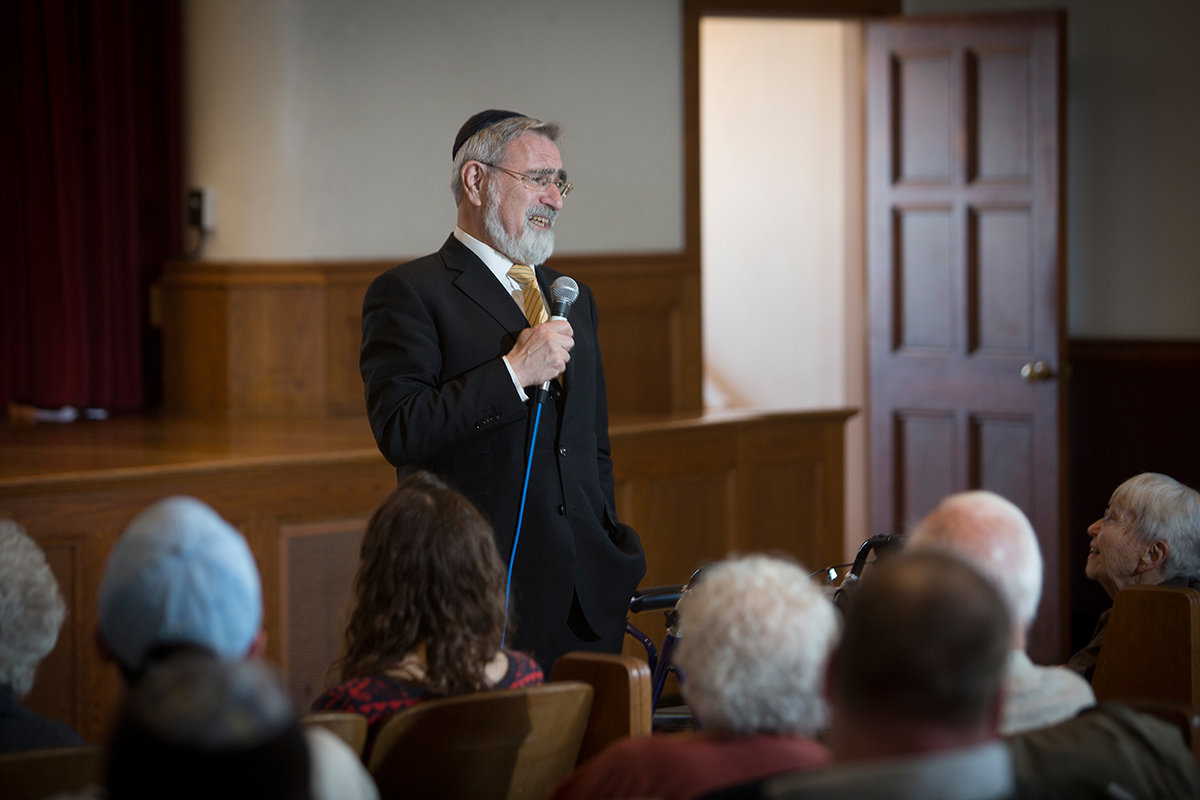Rabbi Jonathan Sacks explores roots of religious violence
By Emily McNeill

Jonathan Sacks, professor, philosopher and former chief rabbi of the United Kingdom, lectured on his most recent best-selling book, “Not in God’s Name: Confronting Religious Violence,” on campus April 20. Sacks discussed present-day religious violence and extremism, employing a radical reinterpretation of the Bible to explain the tensions between the three Abrahamic religions, Christianity, Islam and Judaism.
René Girard, a 20th-century theorist and disciple of Sigmund Freud, argued that the major driver of violence was mimetic desire, or the desire to have the possessions of others. Girard contended mimetic desire was most often expressed as sibling rivalry, Sacks said.
Sacks used this concept of sibling rivalry in his analysis of violence in the Bible. “Sibling rivalry is the theme of Genesis,” he said. “We have five stories of sibling rivalry, and there is no doubt that the Bible is telling us that it is a prime driver of violence.”
He illustrated the concept of sibling rivalry in religion via the apostle Paul’s letters to the Romans, where Paul introduced sibling rivalry as a means to distinguish Christians from Jews. “Abraham had two children: Ishmael, by the slave woman Hagar, and Isaac, by the free woman Sarah. Paul said that is the difference between Jews and Christians. Jews are the child of the slave woman because they are slaves to the law, but Christians are free of the law and are the children of Sarah,” Sacks said.
He continued, “Most differences of opinion do not lead people to fight. That is what makes sibling rivalry different. The three Abrahamic monotheisms are not just different ideologies, but are all closely and personally related based on their ties to Abraham and Sarah. One religion has to eliminate the other to get what it most desires, which is the title of most favored child of Abraham.”
Sacks argued sibling rivalry is generated by a logic of scarcity. Siblings fight over attention, and similarly, religions fight for the love of God. However, Sacks emphasized this logic is a result of a fundamental misreading of the nature of divine love.
Sacks explored evidence of the scarcity of God’s love in the Bible. In the story of Isaac and Ishmael, Ishmael and Hagar are cast out of their home on Sarah’s request and are left to starve in the desert. Sacks noted that in this story, the reader’s sympathies are not with Isaac and Sarah, but are with Ismael and his mother. In forcing us to empathize with the other, the Bible is demonstrating that God is with all, not one, Sacks said.
“The Bible is saying yes, sibling rivalry is the root cause of all violence and, therefore, to have a peaceable kingdom we must grow up beyond it. The relationship between Judaism, Christianity and Islam is not a zero-sum game, and it is not a justified case of sibling rivalry because God’s love is not finite,” said Sacks.
The lecture was sponsored by Cornell Hillel, Himan Brown Charitable Trust, Cornell Jewish Studies Program and Cornell University Religious Work.
Emily McNeill ’16 is a student writer intern for the Cornell Chronicle.
Media Contact
Get Cornell news delivered right to your inbox.
Subscribe